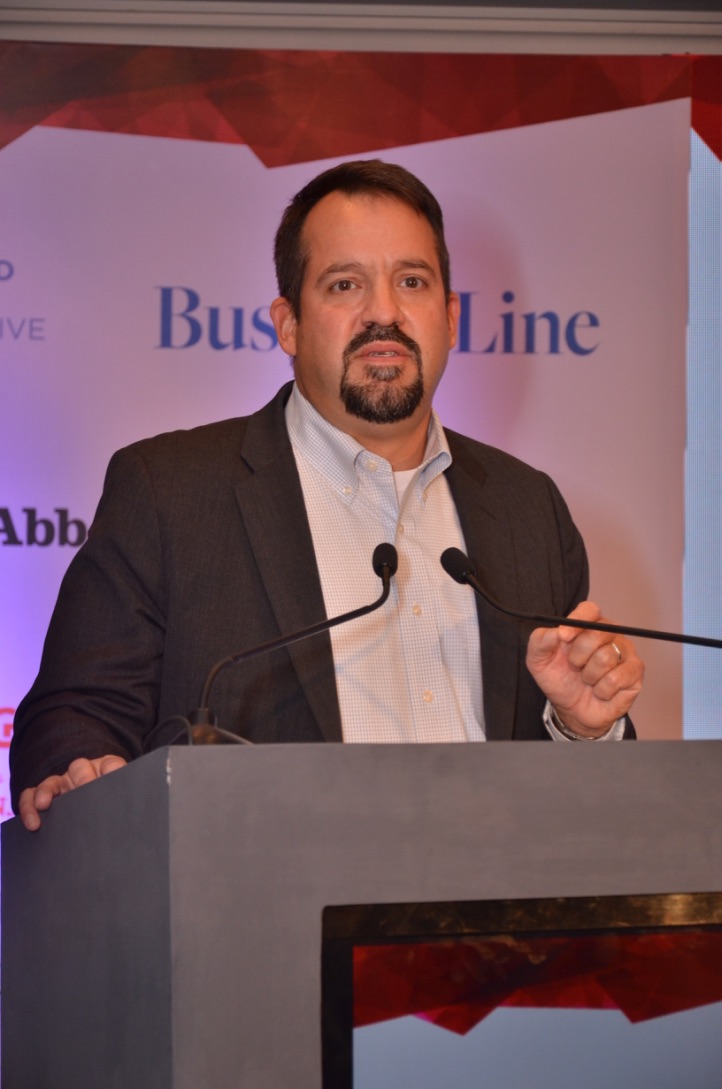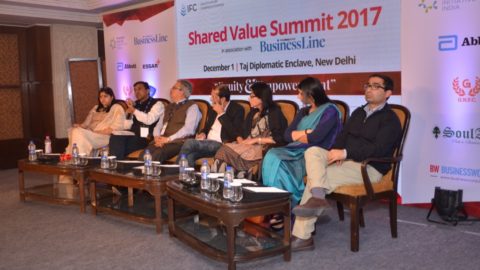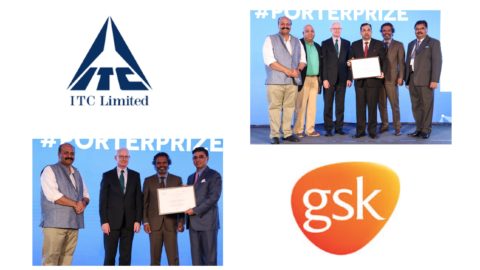“The challenging thing is how we get to further action and scale. It’s about competitiveness, how businesses can compete with respect to social problems,” Justin Bakule
On December 1st, the Shared Value Summit 2017, co-organized by Institute for Competitiveness and NITI Aayog, took place at Taj Diplomatic Enclave, New Delhi. The event brought together diverse stakeholders (corporates, NGOs, women entrepreneurs, government, development institutions, and academicians) on a common platform to identify and address the barriers to equality and empowerment.
In his welcome address, Dr Amit Kapoor, Chair, Institute for Competitiveness said, “We have to go beyond CSR. We have to solve real problems of the world by creating interesting business models. We have the Prime Minister and ministers talking about shared value and social progress, It is a part of the lexicon in the country”. Kapoor also went on to add, “We are going to talk about equity and empowerment and the competitive advantage that can be built. We will talk about what we can do across the value chain, how innovation is going to drive this. I look forward to a great and engaging discussion with all of you.”
This was followed by a discussion on the idea of shared value with Justin Bakule, Executive Director, Shared Value Initiative where Bakule said, “I get the liberal arts education in shared value. I have taken a lot of what I have learnt here and imparted it in different parts of the world. Last year, was really impressed with the picking up of the theme of equity and empowerment. From a US perspective, the reality is that despite little bit of uncertainty in the political environment, the environment for large multinational corporations is fantastic. There has been massive tax cuts for businesses, and there has been a productive environment for businesses. Issues of equity, racial and gender equity, pathways to employment for folks who might be underserved- these are important topics and are increasingly being tied to business issues.”
Bakule also went on to add, “5 years ago when we started this work, the idea that companies should solve social problems was unheard of, it was the government’s job. For example with climate change, companies have realized that addressing it is important, as it may hinder growth opportunities. The challenging thing is how we get to further action and scale. It’s about competitiveness, how businesses can compete with respect to social problems”.
Everyone should reflect on how far their organizations have gone to embed social issues in their business strategy. Do you view CSR as a compliance or a cheque or a cost to be borne by your company? Or as an enabler for an environment in society where your business can operate?”, said Bakule. He further gave the examples of NL and Walmart in integrating sustainability and social responsibility in their business strategy, and how they are enabling conditions within the business. “Within these companies, it’s important to see what the position of leadership looks like in this context. Social issues should be at the centre of competitiveness and core strategy of businesses. We are building a Shared Value Initiative diagnostic with a data-visualization company to unlock scale and driving enterprise-level change. Ask yourselves what it looks like to be a shared value enterprise and embed these issues into your business and how far you have gone, and what you need to unlock share value capabilities in your business”, added Bakule.
The coverage was done by BW Businessworld on December 4, 2017.















